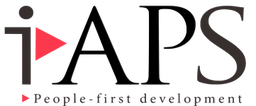
Three Months into the Raging Conflict in Sudan: Voices from the displaced
Three months after the escalation of violence in Sudan between Sudan’s Army and the RSF, International Advisory, Products and Systems (i-APS), a U.S. small business with registration and operations in Sudan, has reached out to the Sudanese people to amplify their voices and understand their needs during these challenging times.
As reported by United Nations entities and several media outlets, the fighting has resulted in thousands dead and millions displaced, with communities experiencing human rights violations, marginalization of minority groups. Recognizing the urgency of the situation and the pressing needs of the Sudanese community, i-APS, teams in Sudan interviewed 22 community members who have been displaced because of the conflict, to shed light on the community's challenges.
Basic necessities such as finding a source of income, accommodation, water, electricity, food, and medication remain immediate and primary concerns. Among the surveyed individuals, 59% expressed an urgent need to find a source of income or employment, highlighting the economic instability they and their families face. Additionally, 32% reported finding accommodation as their primary need. Alarmingly, another 32% of respondents expressed the need for medication or access to healthcare services, as their family members have been suffering from untreated illnesses since the crisis began. Finally, seven respondents (32%) expressed their need to obtain visas for themselves or their family members due to changes in procedures or stricter migration laws for the Sudanese community.
Leaving Sudan presents its own set of challenges, as reported by a woman who moved to Saudi Arabia:
“Moving from one place to another, staying at the crossing for three days, the lack of food supply, and the lack of water and electricity in homes.”
The journey from Sudan to neighboring states is filled with hardships, including prolonged stays at border crossings, vulnerabilities experienced by families, women and children when traveling, inadequate food supply, and limited access to water and electricity in homes. Financial resources are scarce, as many individuals lack stable sources of income, face restricted access to financial services, and struggle with increased costs of visas and travel.
Since the conflict began on April 15th, Sudan has witnessed an alarming loss of lives. According to the UN Office of the High Commissioner for Human Rights (OHCHR), civilians have been targeted and killed in markets and their own homes, particularly in Khartoum. Essential infrastructure, including water stations, hospitals, and electrical facilities, has fallen under the control of warring factions, leaving many citizens without access to clean water, medical supplies, and electricity.
Another testimony from a woman who moved from Sudan to Egypt elucidates the lack of access to health services after the conflict started:
“I am expecting my first child, and I was terrified that when the due date arrived, we wouldn't be able to find a hospital to welcome me because all hospitals had been destroyed by the bombing. As a result, it was important to travel to another location where both my unborn child and I could be secure”.
Among those interviewed, 50% (11) reported internal displacement and moves within Sudan, while 36% (8) indicated they had relocated to Egypt. The remaining percentage mentioned migrating to the United States (1), Saudi Arabia (1), and the United Arab Emirates (1). Additionally, it was found that most of the surveyed population (68%) migrated with family members, with an average of six family members traveling together.
One testimony collected highlights some of the difficulties faced during migration from Sudan:
“The constant feeling of insecurity due to a large number of checkpoints of the two warring forces from Khartoum to Dongola, noting the insane increase in the prices of travel tickets. We also faced the dilemma of obtaining the necessary money due to the suspension of banking services and the difficulty of obtaining a visa to enter Egypt for the age group of 16 to 49 males”.
As a small business with offices in Sudan, i-APS remains committed to lifting the stories of the Sudanese people and their needs and supporting the humanitarian response to this crisis, through information and data to inform approaches and programming. 💯
